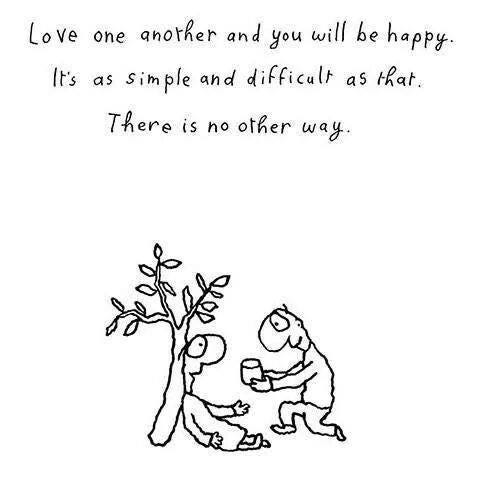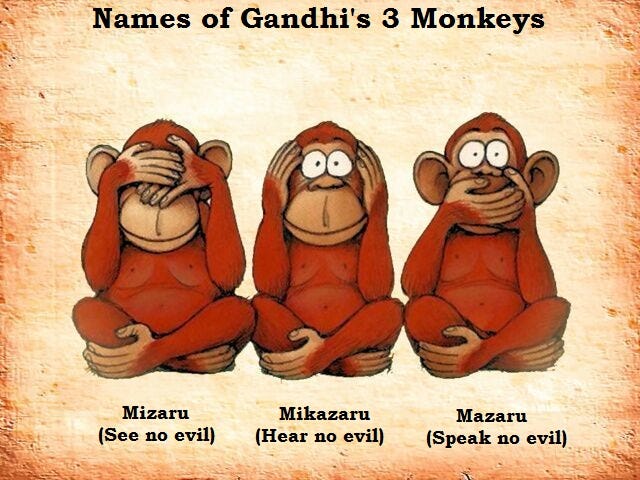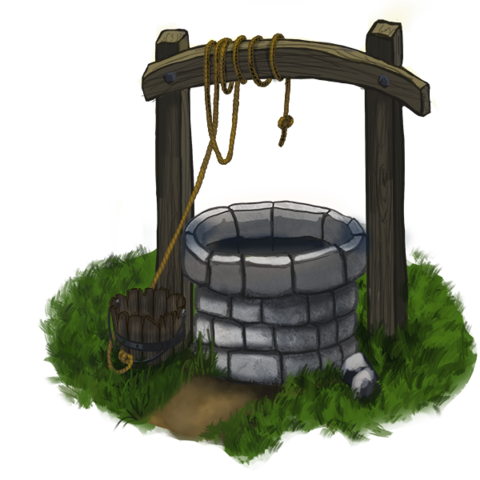Problem: What about the times this doesn’t Happen? Sometimes bad stuff happens to good people. What then?
Stories
Angelo – born to an unwed mother, his father paid to have a midwife poison him. The poison caused him to have seizures but didn’t kill him. His mother, shamed and embarrassed by her sick child, sold him to a rich man who used him to look after his livestock while his own kids went to boarding school. From 2 years old, Angelo lived outside with the sheep, goats and cattle. Joseph’s “ladies under the ground” called him. Angelo was nearly 5 years old now and living like a wild animal. … Used Giraffe to get to him… Angelo said, “I am free here. I suck milk from the cows whenever I want. I eat berries off any bush I want.” It took two weeks to convince little Angelo there was a better life waiting for him. Now, he is an amazing young man… although he still eats grasshoppers as a quick snack whenever he can catch one!
Lekini (13) was asleep in bed next to his two brothers when seven men broke the door down and hacked his brothers to death. They left Lekini with three huge knife cuts on his head and a gash on the top of his forearm from wrist to elbow. Thinking the three boys were dead, the men went outside the house and sang a victory song before disappearing into the night.
Joseph was called and he carried the dying boy on his lap for the next 10 hours as they tried to find an open hospital which could help with such severe wounds. “Most of the skin on top of his head was hanging off the side,” Joseph said. “This boy is a miracle. He bled so much. But he is alive because of God.”
“We are taking this boy,” Carole said. “No matter what. He needs hope. We will find a sponsor. What is his English name?”
His uncle had been listening through Joseph’s translation to the meeting that afternoon. “His uncle says,” Joseph translated, “He wants his English name to be David, like you.” The old man’s sad eyes smiled at me.
Joseph
“I receive a call about a child in need of rescue nearly every day,” Joseph told me. “I have 15 children in the program right now. They are fully sponsored to go to school. They have food, clothes, education and most important - they are safe.” Joseph paused and then asked, “Do you want to know how many children are on my list, right now? Children that I have verified their stories and they need safety?”
“How many?” I asked.
“One hundred and sixty-one. THAT MANY need the safety to be on the program.” Joseph studied me with his powerful Maasai stare. “Can you help me to get these sponsors, David? Is this something you can do?”
“I will try, Joseph,” I said with tears in my eyes. “I will tell your story. When western people’s hearts are touched, they are very loving, kind and generous. But, in the west, everyone is asking for money. So, we need to hear real stories to believe the money will actually help.”
“Thank you, David. Thank you, so much!”
Carole: If the Devil was defeated at the Cross, why are there such horrible things still happening? Why doesn’t God act? He knows who is evil and who is good. Why wait? If God is all powerful, why doesn’t he use that power to act now?
Me: God’s followers have a habit of getting God’s nature wrong – and teaching wrong thing about God to our children.
In OT times, a few Millennia after leaving Eden, they had warped the promise of a Messiah to mean God would send a Deliverer who would defeat the oppressors and rule with an iron rod. A Warrior King.
Now, a couple of millennia after Jesus’ return to Heaven, we are convinced Jesus came to show God’s power. If this is true – God has ultimate power - all that happens on Earth is, ultimately, His fault – part of His plan. This is a wrong view of God’s nature. This is not what Jesus came to show us about God. POWER is not God’s defining attribute. If it was, He would take control.
Carole: I see. Jesus came to show God’s love. God’s defining attribute: “God is Love!”
Me: Yes. And within the bounds of God’s perfect Love, His power lives. Love gives freedom. Freedom of choice is the ultimate expression of God’s Love. The Perfect love of God allows choices to be made and then honours those choices. But, ultimately, Love will win. God’s Love is patient. It is long-suffering. And it can be seen everywhere, while we wait.
"God is love" is written upon every opening bud, upon every spire of springing grass. The lovely birds making the air vocal with their happy songs, the delicately tinted flowers in their perfection perfuming the air, the lofty trees of the forest with their rich foliage of living green -- all testify to the tender, fatherly care of our God and to His desire to make His children happy. (Steps to Christ 10.1)
John made a wonderful proclamation when he said, “God is love” (1 John 4:8). This means that God creates and sustains all things in love. Love is the very essence of God. No one could possibly be described as being “love” itself. Only God is completely loving because love is His very entity, nature, and character. When John writes, “God is love,” he is giving the reader the clearest, briefest, most comprehensive expression possible of the nature of God. This divine love motivated God to give His Son to this world to die for our sins. God loves and as a natural consequence of this love, He gives us: His Son, forgiveness, salvation, fellowship, and eternal life. Believers can see the love of God most clearly in the crucifixion and resurrection of Jesus Christ. (Holman Treasury of Key Bible Words)
The Disciples all had the wrong idea about Jesus – even though they knew Him well. When they came to the waterhole with Jesus, the Disciples knew about the Devil and his angels. They knew about the lion and the crocodiles. But, they thought Jesus’ POWER would dominate. They thought Jesus – the Deliverer, Warrior King - would walk unscathed through this world. Like an elephant at a waterhole, Jesus would be unable to be touched and would set up His Kingdom. And so they looked for POWER in the life of Jesus. And they saw it. But what they didn’t realise was that Jesus’ POWER was confined in a greater reality – GOD’S LOVE. So, they watched what they thought was an Elephant walking through the streets of Jerusalem and wondered how other’s could miss it – and asking when – WHEN WILL HE DEMONSTRATE HIS POWER? But, they were looking for the wrong animal at the waterhole.
The Blind Men and the Elephant
John Godfrey Saxe (1816-1887)
It was six men of Indostan
To learning much inclined,
Who went to see the Elephant
(Though all of them were blind),
That each by observation
Might satisfy his mind.
The First approached the Elephant,
And happening to fall
Against his broad and sturdy side,
At once began to bawl:
"God bless me! but the Elephant
Is very like a WALL!"
The Second, feeling of the tusk,
Cried, "Ho, what have we here,
So very round and smooth and sharp?
To me 'tis mighty clear
This wonder of an Elephant
Is very like a SPEAR!"
The Third approached the animal,
And happening to take
The squirming trunk within his hands,
Thus boldly up and spake:
"I see," said he, "the Elephant
Is very like a SNAKE!"
The Fourth reached out an eager hand,
And felt about the knee
"What most this wondrous beast is like
Is mighty plain," said he:
"Tis clear enough the Elephant
Is very like a TREE!"
The Fifth, who chanced to touch the ear,
Said: "Even the blindest man
Can tell what this resembles most;
Deny the fact who can,
This marvel of an Elephant
Is very like a FAN!"
The Sixth no sooner had begun
About the beast to grope,
Than seizing on the swinging tail
That fell within his scope,
"I see," said he, "the Elephant
Is very like a ROPE!"
And so these men of Indostan
Disputed loud and long,
Each in his own opinion
Exceeding stiff and strong,
Though each was partly in the right,
And all were in the wrong!
All 12 disciples had a wrong understanding of Jesus – and thus of God’s nature. Jesus had said, “If you have seen me, you have seen the Father.” And yet, the disciples were still looking for Jesus to swing his massive tusks – call 10,000 angels – and set the world to rights. Judas and Peter both took a step in this direction. Judas sold the location of the praying Jesus, hoping to startle Him into defensive action. Peter drew his sword and took the first swing. Jesus, on the other hand, picked up the ear Peter had removed and replaced it – healing the head of the man who came to take him prisoner.
Peter and Judas both fled the scene – each when the heat got too much. Judas couldn’t live with what he’d done. Peter couldn’t see where he’d gone wrong. Both men acted out the doubt and confusion of the twelve.
Jesus was supposed to win. Wasn’t He?
But they had misunderstood the nature of Jesus. He hadn’t come to show POWER but LOVE.
He hadn’t come to fulfil the wishes of the disciples but to reveal the nature of His Father.
He hadn’t come to the waterhole as an elephant – stomping his way to victory.
He hadn’t come to the waterhole as a buffalo – sniffing out and scaring off the devil.
Jesus said, “If you’ve seen me, you’ve seen the Father.”
He hadn’t come to show God’s POWER but God’s LOVE.
And Jesus showed God’s LOVE by entering the waterhole as a wildebeest.
Like many others before Him, Jesus was lifted up and nailed to a cross. Rome had crucified thousands.
Even on that day, there were three.
Jesus entered our waterhole like any of the millions before him.
The roaring lion, looking for someone to devour, leapt upon Jesus – driving his clawed nails into hands and feet.
The crocodile, Leviathan, roused from despair’s depths - took hold of his side – and beginning the death roll, pulled Jesus under - into murky darkness.
And Jesus died.
“If you’ve seen me,” Jesus said, “you’ve seen the Father.” (John 14:9)
“I give you a new command:” Jesus said, “Love one another. Just as I have loved you, you must also love one another. By this all people will know that you are My disciples, if you have love for one another.” (John 13:34-35)
There are thousands of children - like wildebeest heading into the waterhole. It is a rare person who can live among them like Jesus. This is a very special calling. Very few of us are Saviours. But all of us are disciples.
And like the Disciple Peter, we are still alive because – now that we understand it – we have accepted the rescue Jesus offered on the cross and the eternal life He promised by conquering the grave. We have hope because we know the rest of the story. May we make this hope of a better life a reality for as many of God’s children as possible.
----
Non-PCF Questions
(Something to chew on)
Jesus suffers with us.
Who do I need to tell this?
How and when will I do it?














.jpeg)
.jpeg)